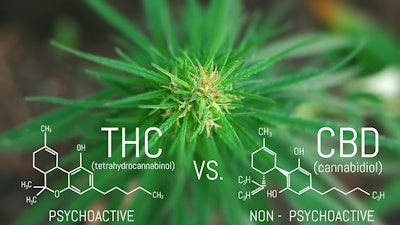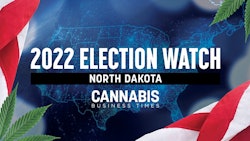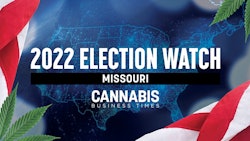
Unintentional loopholes in the 2018 Farm Bill have allowed intoxicating hemp-derived cannabinoids to create a “wild west” of unregulated products, the head of a major California cannabis trade group claimed this week.
In a white paper released Oct. 19 by Sacramento-based California Cannabis Industry Association (CCIA), the group’s members call for urgent reform as they claim the “dangers” associated with intoxicating products being sold as hemp continue to pose a widespread threat to public health.
CCIA represents hundreds of state-legal California cannabis businesses and works to promote the growth of a responsible and legitimate industry.
“Policymakers have inadvertently created a wild west of hemp-derived intoxicants that are putting the health of consumers across the country at risk,” CCIA Board President Pamela Epstein said in the white paper. “The proliferation of these unregulated and untested synthetic cannabinoids is a public health crisis, and we are calling for immediate action to protect public safety.”
In September 2021, the U.S. Food and Drug Administration (FDA) released a warning statement, and the Centers for Disease Control and Prevention released a health advisory statement cautioning potential consumers about the adverse effects associated with hemp-derived products containing delta-8 THC, which can be synthesized from CBD. Those effects range from vomiting, hallucinations, trouble standing and loss of consciousness, to deep sedation, slowed breathing, irregular heart rates and decreased blood pressure, according to the two federal agencies.
RELATED: Delta-8 THC Has ‘Serious Health Risks’ Warns Two Federal Agencies
In addition to delta-8 THC, CCIA officials cited several other cannabinoid compounds in the report entitled “Pandora’s Box: The Dangers of a National, Unregulated, Hemp-Derived Intoxicating Cannabinoid Market.”
Some of the other cannabinoid compounds cited include:
- THC-P, which a 2019 Scientific Reports study found has a binding affinity to human receptors 30 times greater than delta-9 THC[AR2] , making it more intoxicating;
- THCjd, which is being promoted for its “unique psychedelic effects” and is reportedly 19 times more intoxicating than THC;
- THC-O, a semi-synthetic derivative, that is reportedly two to three times more potent than THC.
- Delta-10 THC, which is similar to delta-8 but not derived from any compound in the plant; and
- HHC, which is THC modified to be more potent than delta-8 or delta-10.
With the 2018 Farm Bill specifically defining the legal delta-9 THC concentration of 0.3% for hemp, but not defining delta-8 or other minor cannabinoid concentrations, the lesser-known compounds are often derived and included in products. Some of those products mimic popular snack foods or appear as candy and sometimes are promoted based on their high-potency or even their ability to help people circumvent drug tests, according to the CCIA.
“We’re regularly seeing products with up to 10 times the intoxicants that are allowed in the regulated California cannabis market, packaged under names like ‘THC Hot Cheetos,’ ‘Cookie Monster’ and ‘Lucky Charmz’ to appeal directly to children,” CCIA Executive Director Lindsay Robinson said. “With the way these products are sold, it’s easier for a kid to get their hands on them than a six-pack of beer. We urgently need laws, regulatory frameworks, and enforcement that recognizes that an intoxicant is an intoxicant.”
According to the report, the unregulated products are available without age-gates or testing standards and are sold in gas stations, convenience stores, smoke shops and online (without interstate oversight).
“Intentionally or not, the 2018 Farm Bill left the barn door open and so-called ‘hemp’ manufacturers have run right through it, creating a rapidly growing market for dangerous intoxicants,” said Tiffany Devitt, the paper’s primary author, CCIA Board vice president, and head of Regulatory Affairs for March and Ash and CannaCraft. “There are steps that can and should be taken to protect the public, ranging from much needed enforcement of existing laws to action by Congress, and federal and state regulators.”
In the conclusion of the report, CCIA officials made four recommendations to address the “public health crisis” they said originates from the 2018 Farm Bill:
- Create a unified federal framework for regulating intoxicating cannabinoids that is aligned with current science and strikes a balance between access and consumer safety. This includes legalizing and regulating cannabis at a federal level and making all plants grown for cannabinoid content subject to similar regulations rather than an arbitrary THC threshold.
- Congressional action to close unintended loopholes in the Farm Bill that are being exploited to sell intoxicating cannabinoids outside regulated markets.
- Action by the FDA to exercise its authority to approve or disapprove of new synthetic compounds that are not found in the plant in commercial quantities.
- Enforcement of existing laws in California (and other states as applicable) that prohibit the sale of intoxicating cannabinoids outside the regulated cannabis market and the creation of a unified regulatory framework for all plants grown for cannabinoid content.
























